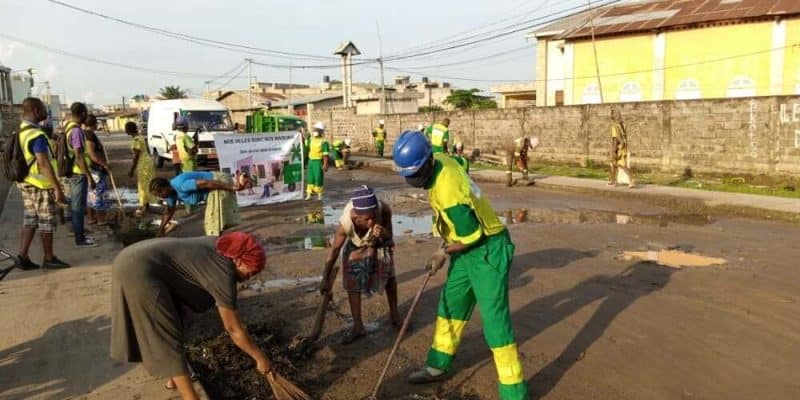Initially scheduled for April 2022, the billing of waste collection services will come into effect in January 2023 in the councils of Cotonou, Sèmè-Podji, Porto-Novo, Ouidah and Abomey-Calavi. The measure taken by the Société de gestion des déchets et de la salubrité du Grand Nokoué (SGDS-GN) aims to improve the sanitation service in this agglomeration.
In Benin, the inhabitants of the councils of Cotonou, Sèmè-Podji, Porto-Novo, Ouidah and Abomey-Calavi will henceforth pay fees for the collection of their household waste from January 2023, an operation that has been free until now. The announcement was made by the Société de gestion des déchets et de la salubrité urbaine du Grand Nokoué (SGDS-GN).
“It is planned that households pay a contribution. Initially, we wanted this contribution to be added to the electricity and water bills, but the authorities at the highest level decided not to retain this option,” explains the general manager of the SGDS-GN. According to Valérie Lawson, this will strengthen the efficiency of this public service company created in 2018, which manages 450,000 tonnes of household waste annually, of which 46% is organic, 5.5% recyclable and 35% is fine sandy material.
For the record, the end of the free waste collection service was initially scheduled for April 2022, as part of the Beninese government’s action programme (PAG). The initiative aims to provide a sustainable solution to the problem of urban sanitation in order to improve public health, the well-being of the population and reduce the harmful impact of the proliferation of waste on the environment.
Read also-BENIN: The government launches rainwater drainage works in Porto-Novo
However, a study carried out by the Agence d’exécution des travaux urbains (AGETUR) based in the economic capital Cotonou reveals that out of the 2.3 million inhabitants of Grand Nokoué, less than half of households evacuate their waste via the collection points. “Other surveys carried out in 2017 and 2019 have identified more than 1,000 illegal dumpsites. This pre-collection service was neither monitored nor evaluated by town halls and was beyond control. Out of 230,000 tonnes of waste produced, barely 10% was collected and transported to the Ouèssè Technical Landfill Centre (CET),” says Agetur.
Benoit-Ivan Wansi






